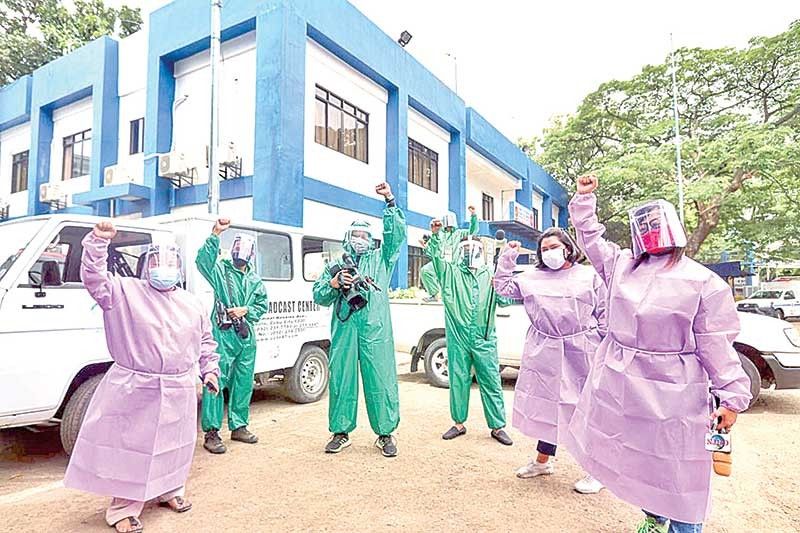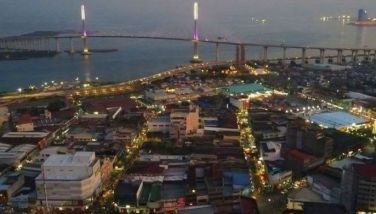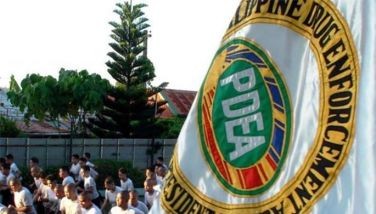The Freeman at 101: Journalism in the time of pandemic

CEBU, Philippines — “I‘m not going to lie — I’ve thought about quitting a few times ever since the lockdown,” reveals Cebu City Hall beat reporter Alicia Chua.
“I admit there were times when I felt like I wanted to quit, too, because of the draining situation and news,” reinforces Mary Ruth Malinao, Alicia’s partner in the beat.
“Gradually, as things began to get so menacingly harsh,” photojournalist Aldo Banaynal relates, “fear and doubt kicked in because it’s when you realized that the threat is very real.”
Unlike ordinary citizens, Alicia, Ruth, Aldo — and the rest of The FREEMAN’s roster of reporters and photographers — are publicly accountable as journalists. But like everyone else, they’re humans: vulnerable and mortal.
And so when the coronavirus swept through Cebu City in March, one barangay after another, hesitation lorded their hearts.
Four months later, they are still standing their ground. And although they’re not sent to the frontlines every single time in the interest of safety, they, nonetheless, continue to pursue stories and photos that inform the Cebuanos.
Their tirelessness enables The FREEMAN to continue coming up with physical issues and online updates day in and day out during the pandemic.
Media’s new normal
When you have a virus that spreads exponentially, any established system can falter. The coronavirus did just that to most, if not all, media outfits.
“In gathering information, number one challenge is the work from home scheme,” says Ruth. “Because unlike on field, you would not know when you’d be able to reach your source, especially if there’s no presscon scheduled for the day.”
There are times sources, the ones who have access to key information, cannot be reached at all.
Seasoned reporter Mitchelle Palaubsanon echoes this problem of non-availability of primary news sources.
“But if they are not around, I look for the secondary source and go on with writing articles. Since the declaration of community quarantine last March, I have been working from home and so far, I can still get my stories via private message, Facebook, Zoom and phone interviews. This is now the new normal for media practitioners,” she says.
For police reporter Iris Hazel Mascardo, the struggle is in visualizing what the source is saying from the other line.
“Being on the field enables me to write what I see first-hand during coverage. Putting all the ideas and applying the elements of a news everyday seems harder since our materials are limited only to what the news sources could deliver over virtual and call conferences,” Iris says.
But just like Ruth and Alicia, Iris tries to bridge the gap by monitoring online activities and preparing questions beforehand for the source to answer. These helped form new angles to stories.
Then another issue crops up – the emotional baggage.
Ruth says: “The challenge is how you’ll be able to handle every news nga bug-at, like death of a source due to COVID, rising number of cases each day, and all other controversies entangled in this pandemic.
“There are times when the information itself would get into your system and make you anxious and scared. Being one of the first persons to receive information about sad and heartbreaking news during this time is hard. Hard because no matter how ugly that information is, you have no choice but to write it as it is one of your obligations as a reporter -- the truth.”
When emotions get the better of him, Aldo goes back to the reason why he is doing all this. “What keeps me going is the people. They need to hear, see, read stories and information that really matters to them. Information that’s real. Because somehow truth can be stained by ill-will or by leaders who try to mislead, leaders whom we are supposed to look up to.”
Aldo points out how some officials would “only show us what they want us to see.” It is in this context that he believes his lenses become valuable.
More importantly, he adds, there is a need to go out there to find stories of courage, hope, and inspiration that flourish in the midst of adversities that the public needs to know.
In one of his nightly rounds, Aldo stumbled upon a garbage collector pushing his kariton along an unusually solitary General Maxilom Avenue. Before snapping his camera, a man in military uniform onboard a motorcycle stopped by the old man.
The military man, as he appeared to be, drew something from his side. He handed it over to the old man, and then sped off after reminding him to wear his facemask properly. It was a plastic bag with food. Aldo’s heart melted.
Things that never change
True, the ways by which news stories are pursued have changed. But there are things that do not, pandemic or not.
At the core of The FREEMAN’s brand of journalism is the discipline of verification. It is the painstaking effort of resisting the urge to break stories without getting them straight from the horse’s mouth. It puts a premium not on whether the paper reports it first, but whether it reports it right.
Once verified, the information is then presented with strict adherence to its age-old tagline, “Fair and Fearless.”
“Each story that I wrote in the time of COVID-19 is memorable to me,” Caecent Magsumbol shares. “I can’t choose one but there is a particular incident that, I’d say, I felt vindicated. It’s when President Rodrigo Duterte announced that Cebu City will be reverted back to ECQ after June 15 and no less than the IATF saying Cebu had already become the epicenter/focal point of the virus.
“Prior to that, The FREEMAN exposed how overwhelmed hospitals in the city were coupled by the surging cases, yet there were some who kept on downplaying it and continued to deny it.”
Caecent’s regular beat is sports. When the pandemic descended into Cebu, she was whisked off her home base to augment the circle of news reporters.
Journalists are a favorite subject of bashing, too.
Aldo snapped a photo of a homeless man sprawled sleeping on what used to be a busy Osmeña Boulevard-Colon intersection. The backdrop was the familiar structures of Colon.
Netizens bashed him for not helping the man, as if it was his personal obligation.
Aldo later revealed that he only had a few coins then which he used as fare in going back home.
In the online sphere, the tug of war between information and misinformation is ruthless that it becomes imperative, more than ever, for journalists to live by the tenets of their profession, says social media reporter Preciosa Bacalso.
“Our role is to inform the public and we have to be sure that the news we deliver on a daily basis have to be accountable and credible. There is a growing concern that journalists in the online world are failing to uphold the basic values of journalism due to lack of quality,” she says.
“But we need to know all sides of all people involved in the story,” Preciosa stresses.
Hanging in there
Truth be told, all these ideals will ring hallow without a management that’s willing to reciprocate.
In Manila, a number of news organizations have stopped operations. In the local front, significant cuts in workforce were noted among media outlets.
There are no such cuts in The FREEMAN, according to general manager Melandro Mendoza.
Mendoza convinced Philippine Star and The FREEMAN president Miguel Belmonte to allow the paper’s printing machines to keep rolling after safety measures were implemented.
Mendoza identifies the frontliners in the newsroom —reporters, delivery personnel, and collectors.
“Sa editorial concerns, pinapaubaya ko na sa mga editors. Kung tingin nilang delikado na, pwede namang phone conversations/interview. Lagi ko naman sinasabi na, kung meron na bang magkakasakit saka pa tayo kikilos? Dapat pro-active tayo,” he says.
In the aspect of delivery and collection, subscriptions by hospitals and COVID-risk areas have been stopped momentarily for safety reasons.
For employees living in high-risk areas who have to report on a daily basis, the company has decided to house them while the rest work from home.
Cost-cutting measures are also in place, like trimming down pages.
Mendoza says it also pays well that the company has a good relationship with its suppliers.
“Maganda yung relationship natin sa kanila (suppliers) kasi tuloy-tuloy naman yung sa obligations natin sa kanila. Right now, happy mga suppliers natin, di tayo nade-delay sa payments natin,” he says.
The FREEMAN chairman Jose “Dodong” Gullas also checks on how the paper and the employees are doing everyday.
“Nangungumusta si sir Dodong din. Sinasabi ko, challenging. Every day is a challenge. Pero gusto ko yung challenge, dahil natuto tayo nang husto,” Mendoza says.
Mendoza emphasizes that the revenues from street sales could not compensate for the expenses the company incurs every day, but the paper continues to operate as its way of giving back to the people and in the service of the Cebuanos.
Today, the paper marks its 101 years of existence.
It remembers those who have perished from the coronavirus, those who fought and are still fighting, those who carve out policy measures, those stay on the frontlines, those who dedicate their lives so that others may live.
The FREEMAN’s celebration will not be in the form of bountiful feast or merrymaking. The celebration will be a personal and solemn one, revelled in the heart of each of the reporters, photographers, editors, pre-press, printing, delivery, and administration personnel who have nothing but gratitude for being still here, alive. (FREEMAN)
- Latest























